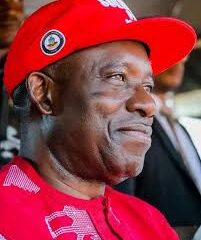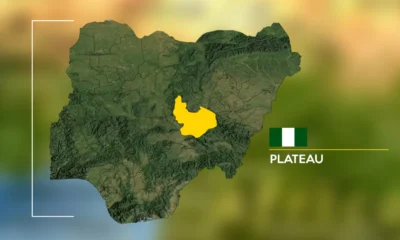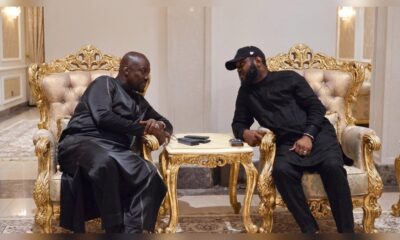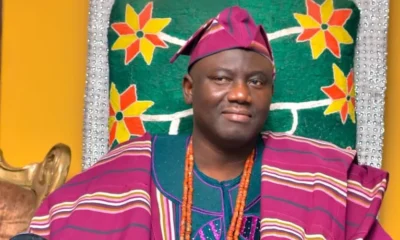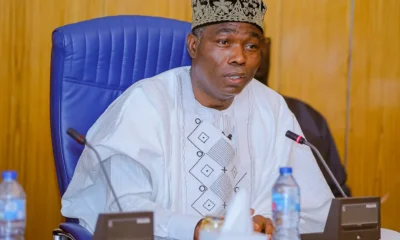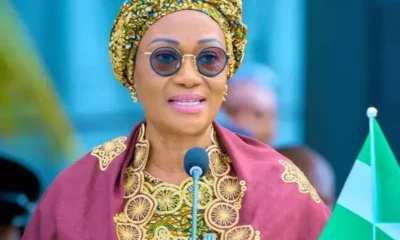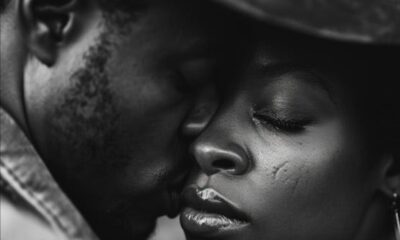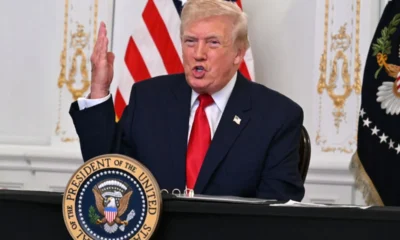News
INSIGHT: Social media amplifiers of Christian genocide claim in Nigeria affiliated with IPOB
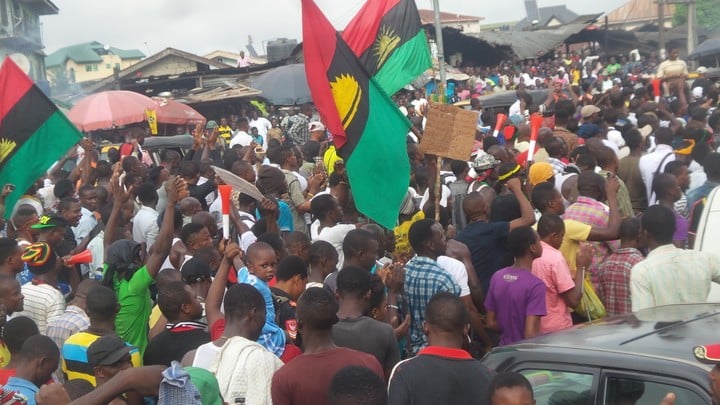
Certain echo chambers on social media have played significant roles in amplifying claims of a Christian genocide in Nigeria, TheCable can report.
Since Boko Haram’s insurgency began in 2009, allegations of a Christian genocide in Nigeria have periodically surfaced.
While such narratives have persisted over the years, their intensity has fluctuated — fading briefly after last year before regaining momentum in 2025.
In a Code for Africa (CFA)–supported investigation, an open-source intelligence (OSINT) analysis indicated that the earliest major spike in mentions of related claims on X (formerly Twitter) appeared in March.
On March 11 and 12, the United States Congress heard proposals from lawmakers seeking the imposition of sanctions on Nigeria as a country of particular concern (CPC).
A CPC is a country with a manifest propensity to religious intolerance, discrimination, and persecution.
Data from X showed that online conversations referencing the Christian genocide narrative remained below 5,000 posts from March to July, rose to nearly 10,000 between July and August, and then recorded a double surge in October, peaking at around 20,000 posts — the highest level in years.
Between January 1 and October 1, the period covered by the investigation, there were approximately 165,000 mentions of the topic on X — an average of about 578 posts per day.
In the same period, the posts reached an estimated 2.83 billion people — a figure more than twelve times Nigeria’s population of roughly 230 million and about one-third of the world’s eight billion people.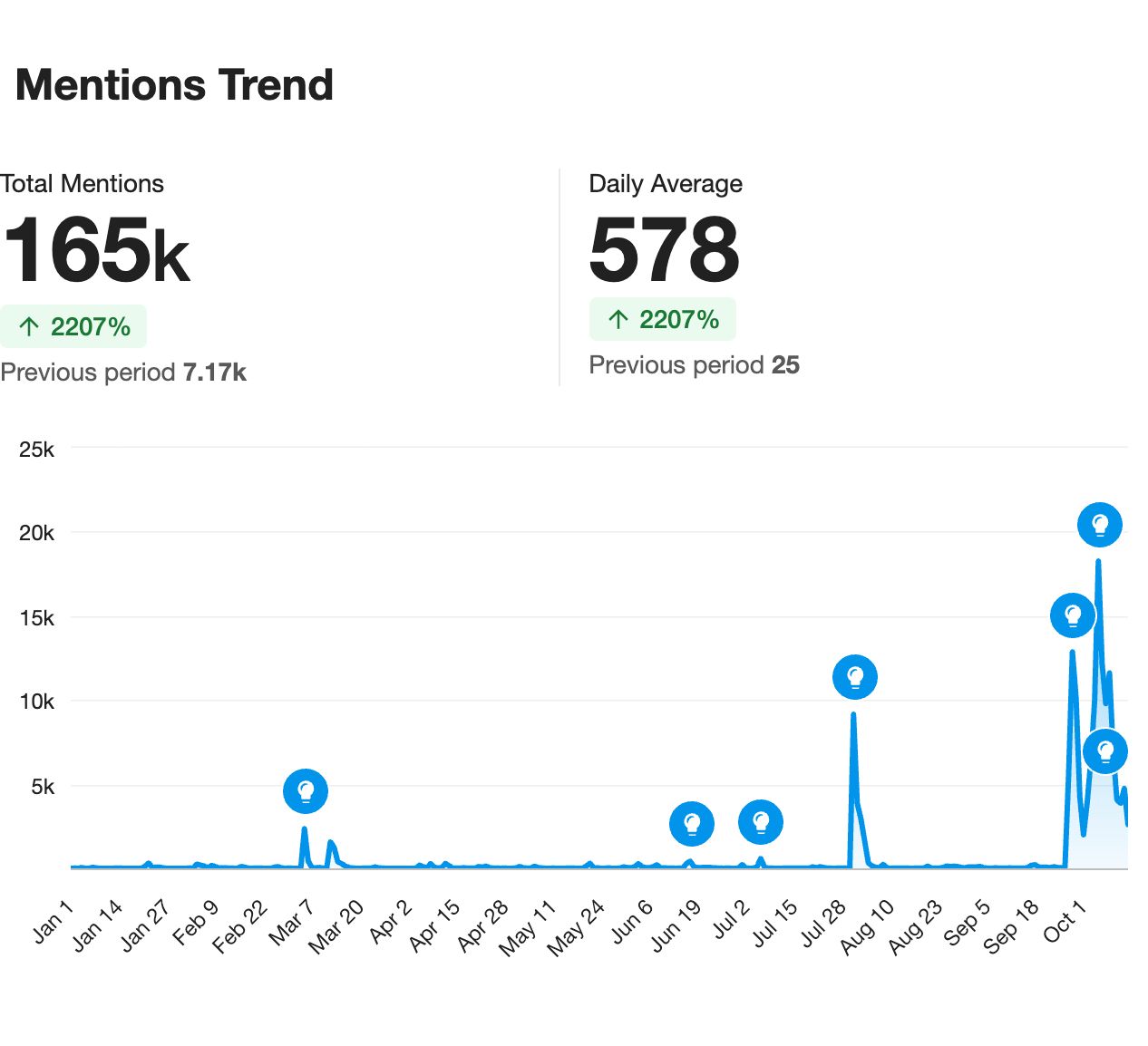
There were approximately 165,000 mentions of the topic on X between January and October. Source: Meltwater
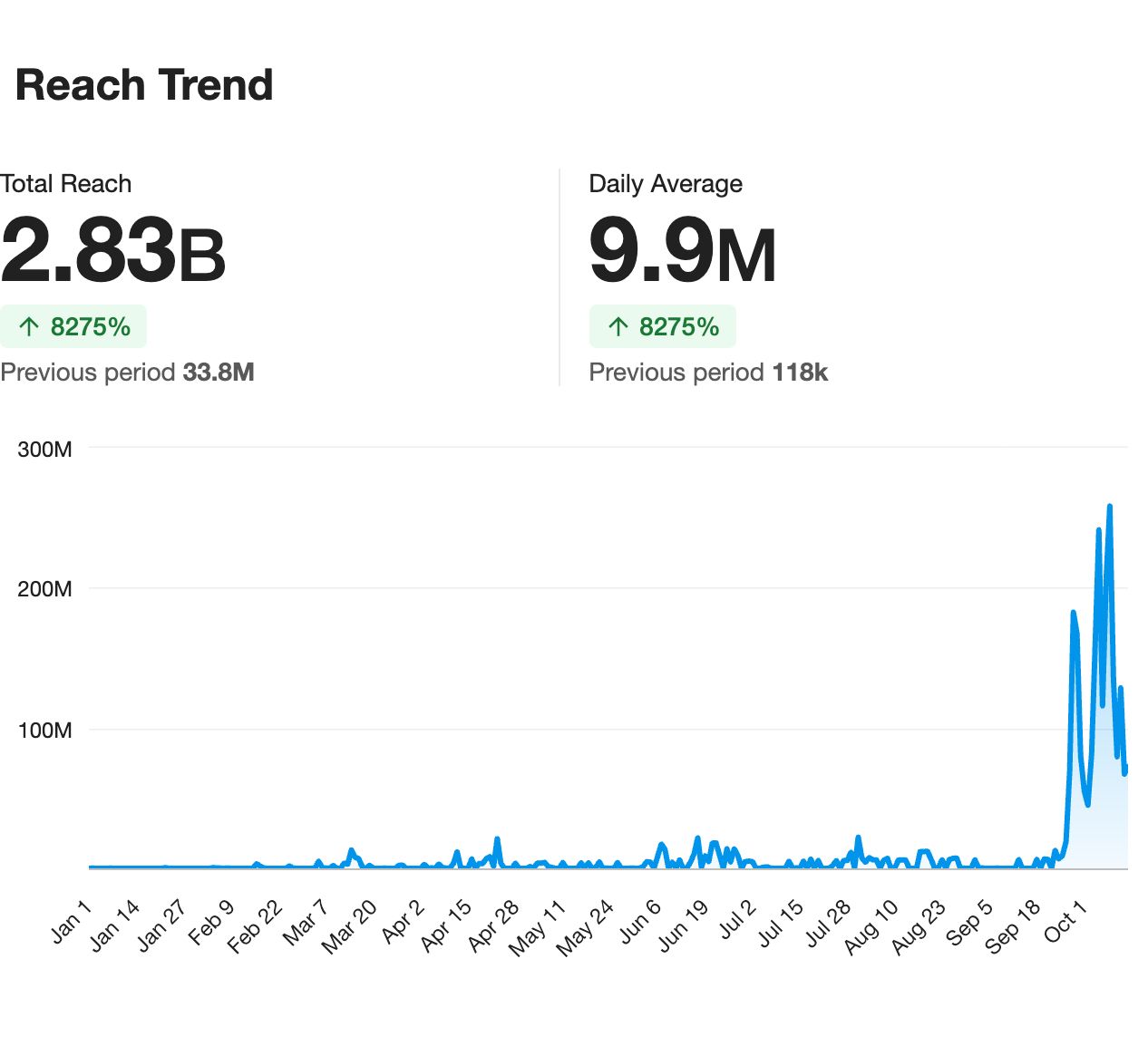
The posts reached an estimated 2.83 billion people — a figure more than twelve times Nigeria’s population. Source: Meltwater
About 38,000 of all posts about the topic came from users posting from Nigeria, based either on their profile location, geotag data, or inferred location from Meltwater, the analytics tool used.
TheCable found four prominent hashtags infused in the discourse: #christiangenocide, #truthnigeria, #laralogan, and #biafraexitnow.
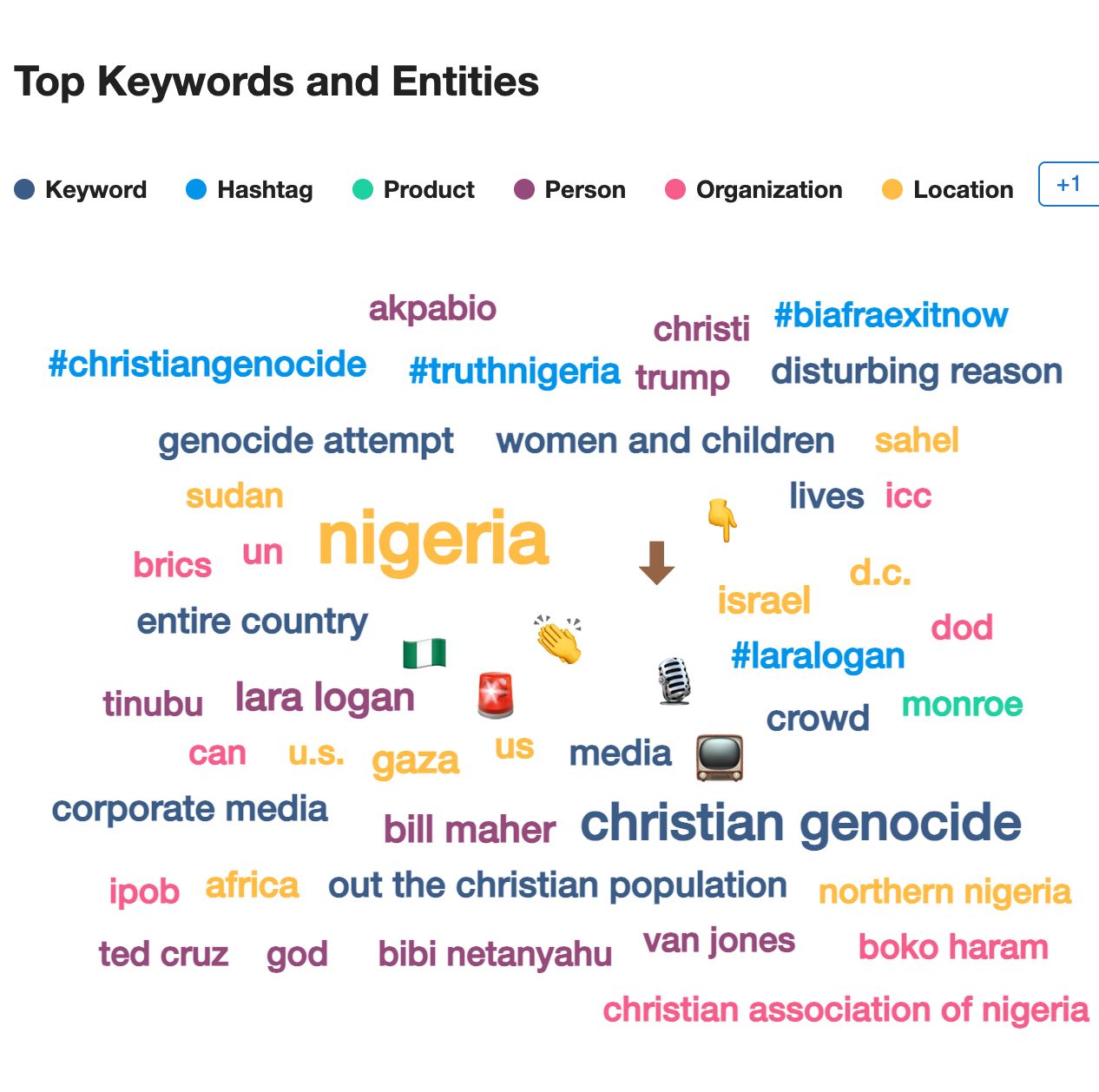
The hashtag #biafraexitnow, coloured in blue, was an inexplicable component within the online discourse. Source Meltwater
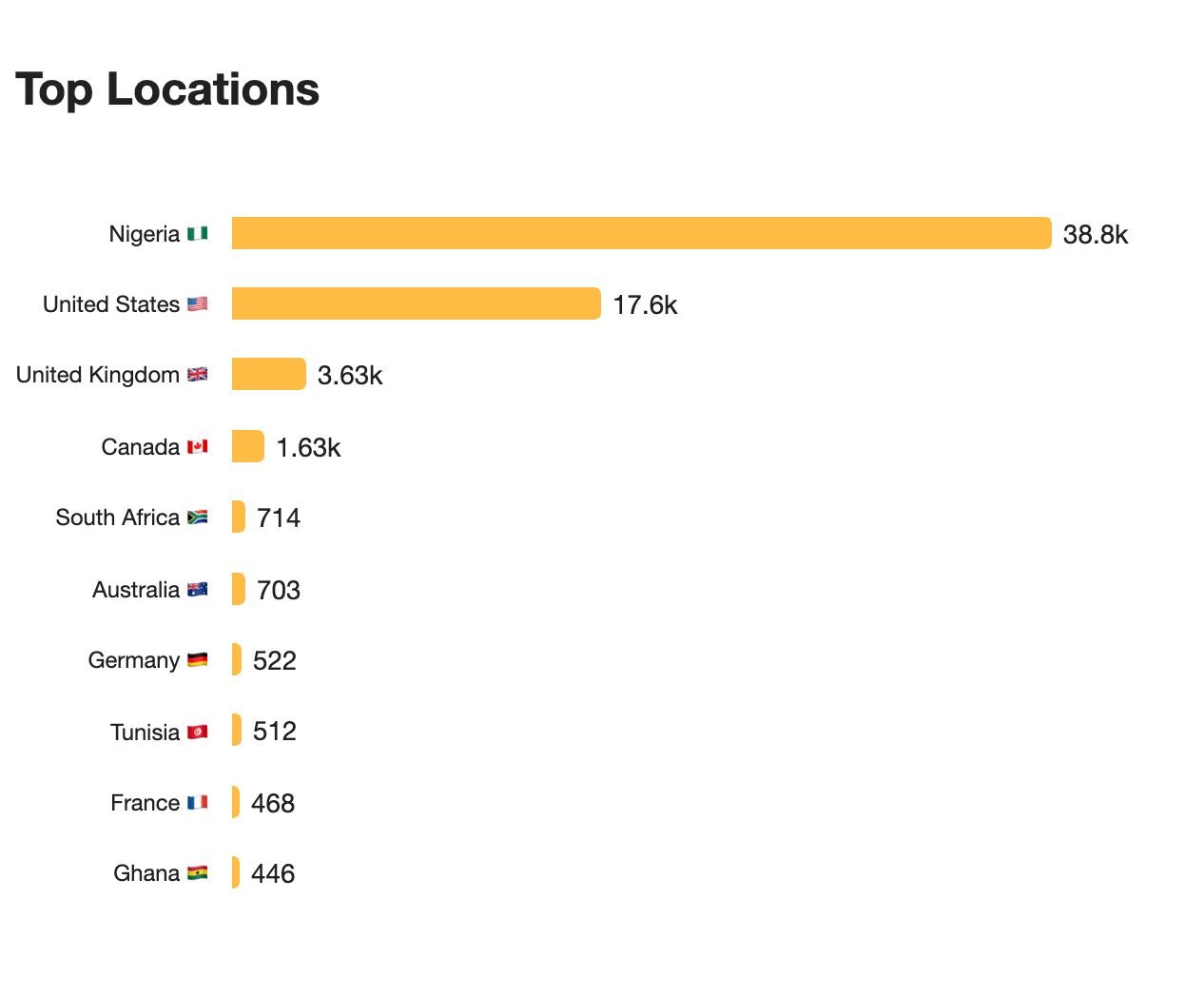
Nigeria had the highest distribution of mentions by the top 10 locations where users posted from. Source: Meltwater
There are understandable reasons for some of the hashtags.
Truth Nigeria is a media platform funded by Equipping the Persecuted, a humanitarian-aid nonprofit in Iowa, US. According to the platform’s website, it was launched to challenge the “biased” mainstream media coverage of violence in Nigeria that ignores what they describe as a “Christian genocide”.
Judd Saul, the platform’s founder, has appeared on talks hosted by Lara Logan, a US investigative journalist who has also amplified the claims.
But the hashtag #biafraexitnow was an inexplicable component within the online discourse.
TheCable found that the Indigenous People of Biafra (IPOB), a separatist group in Nigeria that aims to restore the defunct Republic of Biafra, was among organisations featured in the X posts that mentioned claims of a Christian genocide.
Sentiment analysis of the conversations showed that 68.3 percent of the posts carried a negative tone.
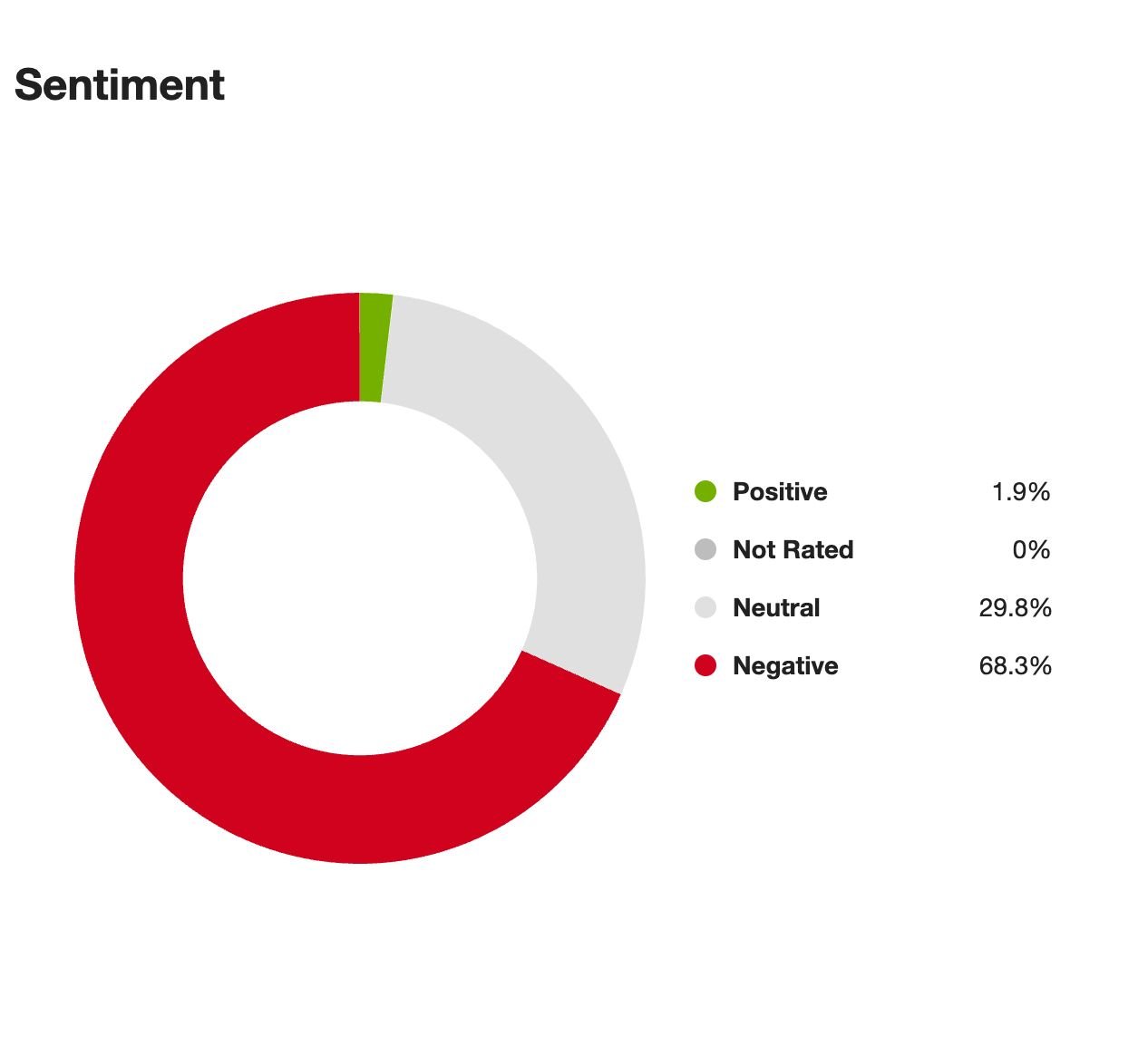
A large portion of the conversations carried a negative tone. Source: Meltwater
Analysis of datasets obtained from CfA also showed that keywords supportive of Biafra and Nnamdi Kanu, IPOB leader, appeared most frequently in author bios.
Some X accounts, notable for championing calls for IPOB’s separation from Nigeria, featured in the conversation.
Multiple tweets from @jcokechukwu, for example, claimed an ongoing Christian genocide in Nigeria. The same account, which has about 141,000 followers, has repeatedly made posts in favour of IPOB.
HOW DID IPOB BECOME ENTANGLED IN THE “CHRISTIAN GENOCIDE” NARRATIVE?
Confidence MacHarry, a senior geopolitics analyst at SBM Intelligence, linked the separatist group’s involvement in amplifying the claim to underlying ideological sentiments.
“The story about Christian genocide in Nigeria is not something that was pushed by any other organisation. IPOB started it as far back as 2016,” MacHarry said.
In 2016, violent clashes between the separatists and state security forces in Anambra left an unconfirmed number of victims dead. Most of the killings were underreported.
“It was very common to see handles that showed Nigerian army violence against IPOB supporters and their members in the south-east,” MacHarry explained.
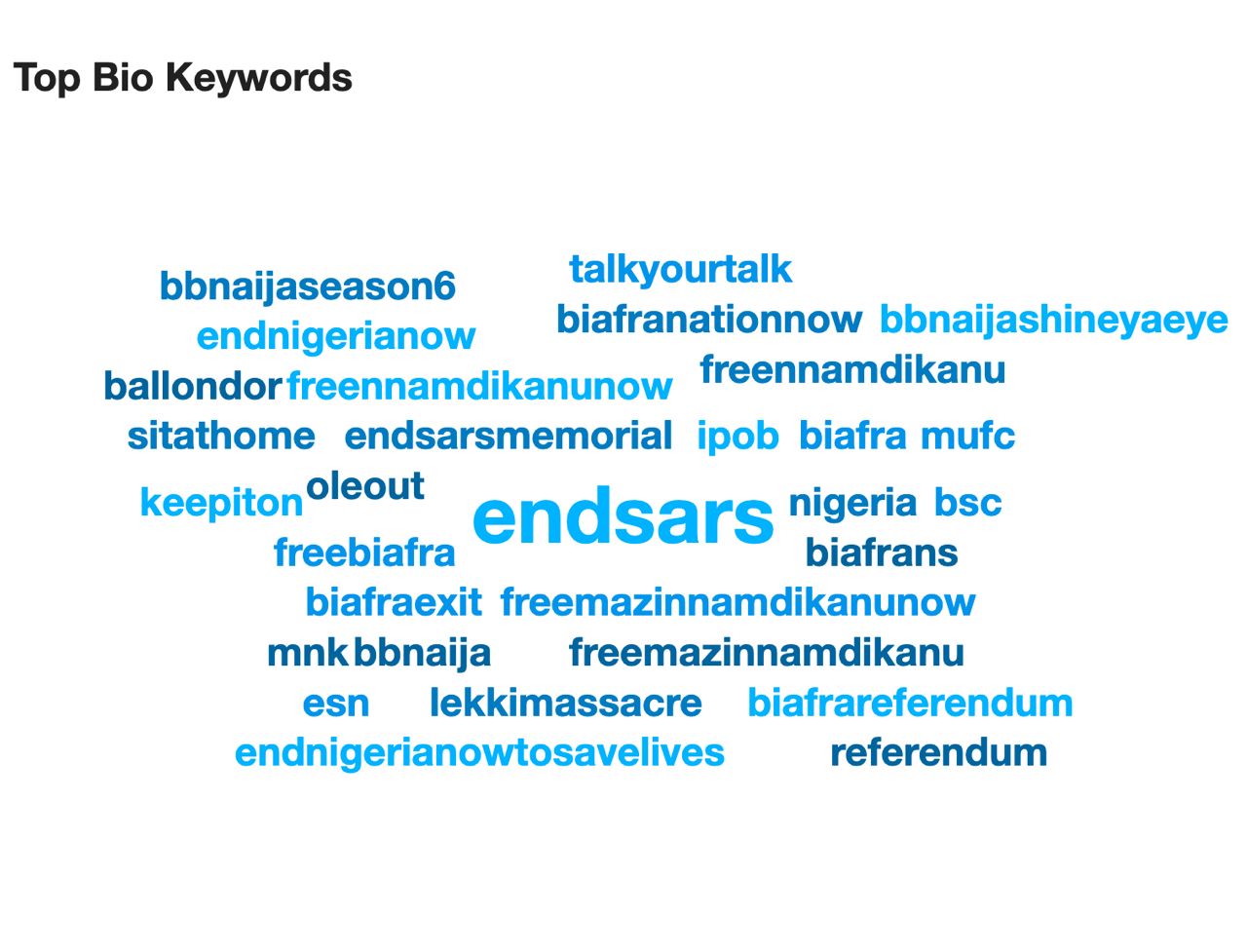
Keywords supportive of Biafra and Nnamdi Kanu, IPOB leader, appeared most frequently in author bios. Source: Meltwater
MacHarry also noted that IPOB is sympathetic toward the US President Donald Trump administration.
Christians were among Donald Trump’s strongest supporters during his first and second terms, largely due to his positions on social issues such as abortion, religious freedom, and conservative judicial appointments. Similarly, Christianity is the dominant religion in Nigeria’s south-east region.
“You also need to understand that their sympathy to the Trump administration, especially in 2017, was that he got into office with a huge backing of the evangelicals,” he said.
“The framing of what they (IPOB) are going through in the hands of the Nigerian government, who they have accused of having an Islamic motivation, trying to suppress Christian ideology and all of that, the Trump administration would be a lot more responsive in their sanctions or their proposed sanction.”
But MacHarry noted that an overwhelming drive of the resurrection of the Christian genocide narrative is owed to the Catholic Bishops Conference of Nigeria, whose members have testified to an “intentional” killing of Christians in the US Congress.
Regarding IPOB’s entanglement, “much of what they are doing is more in line with their own plight, not necessarily the plights of Christians generally. It’s more of ‘if the Trump administration focuses on Christian plights in Nigeria, there is a chance that a little bit of that spotlight will be on the southeast,” he added.
“It also doesn’t help that Intersociety, an NGO that is very interested in documenting ‘killings of Christians’ in the southeast, is at the forefront of these calls.”
Earlier this year, the International Society for Civil Liberties and Rule of Law (Intersociety) — a pro-Christian civil rights group with a penchant for promoting sectional interests — claimed at least 7,087 Christians have been killed in 2025.
The claim, which said the killed Christians surpassed the death of Palestinian civilians in Gaza this year alone, was circulated widely by foreign media.
Cable Check, TheCable’s fact-checking arm, found the reports to be false.
Emeka Umeagbalasi, Intersociety’s founder, repeatedly voices support for Biafra and Kanu.
In 2023, Intersociety condemned the criminalisation of IPOB’s Monday ‘sit-at-home’ order in the south-east.
The report was published in the Association of Catholic Information in Africa (ACI Africa).
FOREIGN INTERFERENCE
In a France24 TV interview, Daniel Bwala, special adviser to the president on policy communication, blamed the narratives of a Christian genocide in Nigeria on interference from Western actors.
Bwala said the instigated claims were in response to Nigeria’s call for a two-state solution to the longstanding Israeli-Palestinian conflict made by Vice-President Kashim Shettima at the 80th session of the United Nations General Assembly (UNGA).
Nigeria has long criticised Israel’s war in Gaza, condemning civilian casualties and urging a permanent ceasefire.
In his UNGA address in New York, Shettima doubled down on the country’s stance.
“We do not believe that the sanctity of human life should be trapped in the corridors of endless debate,” the vice-president had said.
According to Bwala, 24 hours after Shettima’s speech, Bill Maher, a US comedian, started the Christian genocide campaign.
Maher is an open pro-Israel supporter, recognised as such by Jewish media.
The ‘Real Time’ host previously said it was “unjust” that Palestinian people were forced to move, but that they need to “make the best of it”. He has also said he is “more on the side of the Israelis” in the Israel-Palestinian conflict, and does not consider the blame to be equally shared by both sides.
US lawmakers, who have been at the forefront of pushing for sanctions against Nigeria, include Ted Cruz, a senator, Riley Moore, and Chris Smith, members of the house of representatives.
TheCable found that Cruz has received a total of $1,872,038 in donations from the American Israel Public Affairs Committee (AIPAC), a pro-Israel lobbying group. The data was obtained from Track AIPAC, a financial tracker that compiles and analyses official records from the US Federal Election Commission (FEC) to monitor political contributions linked to AIPAC and its affiliates.
AIPAC has also previously supported Moore, contributing a total of $42,300 to his political campaigns, while Smith has been a recipient of $267,975.
The group has also donated $44,479 to Congressman Chip Roy.
Mike Arnold, a former mayor of Blanco, Texas, and founder of Africa Arise International, has insisted that the ongoing violence and displacement in northern and central Nigeria amount to genocide against Christian communities.
Presenting his “evidence” in Abuja on Wednesday, he said Roy was one among several American officials with whom he was communicating updates.
WHY NIGERIA?
Yusuf Bako, a geopolitical expert and lecturer of international relations at Baze University, told TheCable that the “false reports about the genocide of Christians in Nigeria are being spread by foreign individuals and organisations that have an agenda”.
According to Bako, who is also a foreign policy analyst, the narratives serve as a pressure tactic aimed at pushing Nigeria to yield to western expectations.
“This attack occurs while we talk about helping the oppressed in other countries, notably Palestine, Sudan and Somalia, our partner status within BRICS, long overdue reforms of the international system and our demand for permanent status on the UN Security Council,” he said.
“It is also pressure for our sovereign decisions not to accept the controversial and illegal deportation of Venezuelans to our country, or the fact that we will decide how our important critical minerals are commercially exploited.”
“Our values and the expression of strategic autonomy by the government maintain Nigeria’s pragmatic diplomatic approach to our national interests. Nigeria will always stand up for itself, the subregion and for Africa, and this is why a spotlight is on us.”
Bako noted that internal political differences exist within the country, which could further amplify these “external attacks”.
“We must appreciate that outside interference will leave us without a society to be able to have those differences,” he said, urging Nigerians to “unite against such aggression and the falsehood of this non-existent ‘genocide’”.
A report commissioned by Nigeria’s ministry of foreign affairs labelled the allegations of a Christian genocide in the country as a dangerous single linear narrative.
The report cautioned that the notion reinforces harmful and hateful prejudices and creates scapegoats by blaming one broad group for a problem instead of acknowledging the complex dynamics of the security situation in Nigeria.
(The Cable)
-

 News16 hours ago
News16 hours agoSouth-East Breathes as Monday Sit-at-Home Officially Ends; Markets and Schools Reopen
-

 News16 hours ago
News16 hours agoGunmen Kill One, Abduct Imam, 7 Others In Plateau Community
-

 Politics16 hours ago
Politics16 hours ago‘Stop Funding Your Oppressors’ — Angry Youths Launch Boycott of Odogwu Bitters and Celebrity Channels Over Political Ties
-

 News1 hour ago
News1 hour agoOyo princes launch court fight to preserve Alaafin’s supremacy
-

 Politics16 hours ago
Politics16 hours ago‘Put E-Transmission in Law or Resign’ — SDP’s Adewole Adebayo Issues Ultimatum to Tinubu and NASS
-

 News16 hours ago
News16 hours agoI Never Thought Trump Would Recognise Me – Remi Tinubu
-

 Opinion17 hours ago
Opinion17 hours agoMarriage and money: When comparison turns love into pressure
-

 Metro1 hour ago
Metro1 hour agoAgain, US to deport 18 Nigerians on criminal list



